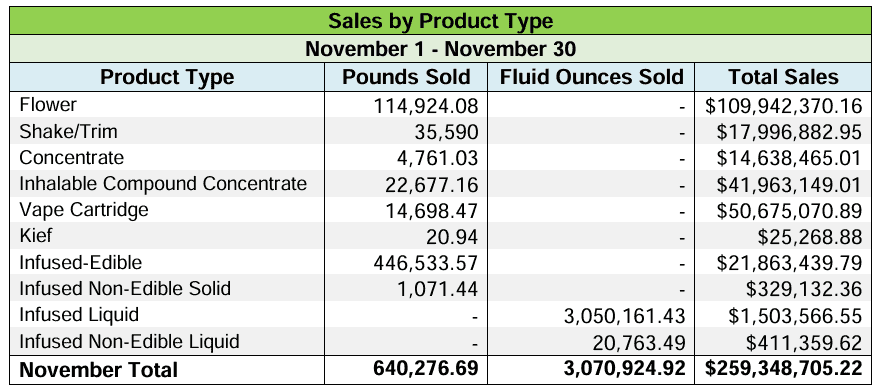WASHINGTON DC – Despite Ohio’s recent legalization of recreational marijuana, federal law still prohibits its use. This means that DEA agents in Ohio and Michigan continue to have the authority to make arrests for marijuana-related offenses.
This ongoing discrepancy between state and federal law has created a complex legal context for marijuana consumers and businesses in the region.

1. The Main Targets of DEA Marihuana Arrests in Ohio:
A DEA official recently informed an Ohio radio network that the agency’s primary focus is on arresting major drug traffickers. However, it does not completely rule out the possibility of making arrests for individuals who consume marijuana under state law.
Moreover, DEA spokesperson Brian McNeal explained to the Ohio State University-owned NPR affiliate, WOSU, that the agency is particularly concerned with those involved in the manufacture and distribution of illegal substances.
He stated, “So, are we necessarily targeting the individual with an ounce of marijuana? Our focus is not on casual users. Instead, we aim to provide important information and remind everyone that marijuana remains a federally illegal substance. Consequently, individuals can still face arrest and prosecution.”
2. What Risks Do Marijuana Users in Ohio Face Despite State-Level Legalization?
Marijuana users in Ohio could face federal charges, including possession, distribution, or trafficking, which can carry significant penalties.
“Can a student be arrested by a federal agent, such as the FBI, DEA, or HSI?” McNeal explained to WOSU, “Yes, but that is not our intent. Our goal is not to arrest casual users who may have a small amount of marijuana on their person.” He further clarified that the DEA typically targets “big fish” involved in the manufacture and distribution of controlled substances.
Moreover, despite state-level legalization of marijuana, cannabis remains classified as a Schedule 1 substance by the federal government. This classification places it in the same category as LSD and heroin.
In contrast, Schedule 2 drugs like fentanyl and methamphetamines, which are potentially far more dangerous, are recognized for having some approved medical uses—unlike marijuana.
3. DEA’s Approach to Education and Prevention Regarding Marijuana Use:
The DEA’s Detroit office recently launched an initiative aimed at college campuses and surrounding communities in Ohio and Michigan. Importantly, this initiative focuses more on education and resource distribution than on enforcement. McNeal emphasized that the DEA aims to raise awareness about drug abuse and highlight the risks associated with synthetic drugs, which have become increasingly potent and potentially dangerous. This concern has also been echoed by Ohio’s Governor Mike DeWine on various occasions.
Additionally, McNeal remarked, “What we like to do is provide information. In the past, we used scare tactics—like when I was a kid watching Saturday morning cartoons, and the guy would fry an egg and say, ‘This is your brain on drugs.’ However, we’ve moved away from that approach.”
Summing Up DEA marijuana arrests Ohio And Michigan:
“DEA Still Making Marijuana Arrests” shows While Ohio and Michigan have legalized recreational marijuana, the federal government has maintained its ban. This creates a legal Gray area, leaving marijuana users in these states at risk of federal arrest. Despite the DEA’s primary focus on drug trafficking, the agency’s stance serves as a stark reminder of the ongoing tension between state and federal marijuana laws.
If you want to learn more about the latest news about the marihuana business in Ohio and Michigan visit mitechnews.com.
FAQs:
1. Can I Still Be Arrested for Using Marijuana in Ohio Despite State Legalization?
Federal law still prohibits marijuana use, even in states where it’s legal. This means DEA agents can still make arrests for marijuana-related offenses in Ohio.
2. What Factors Influence a DEA Agent’s Decision to Make an Arrest for Marijuana Use in Ohio?
Factors like the amount of marijuana involved, the individual’s criminal history, and whether there are other illegal activities involved can influence a DEA agent’s decision.
3. How Can I Protect Myself from Federal Arrest for Marijuana Use in Ohio?
The best way to protect yourself is to avoid using marijuana, as federal law still prohibits it. If you do use marijuana, be aware of the risks and try to minimize any potential legal consequences.
4. What is the Future of Federal Marijuana Enforcement in Ohio?
The future of federal marijuana enforcement in Ohio is uncertain. It depends on changes in federal law and policy.






